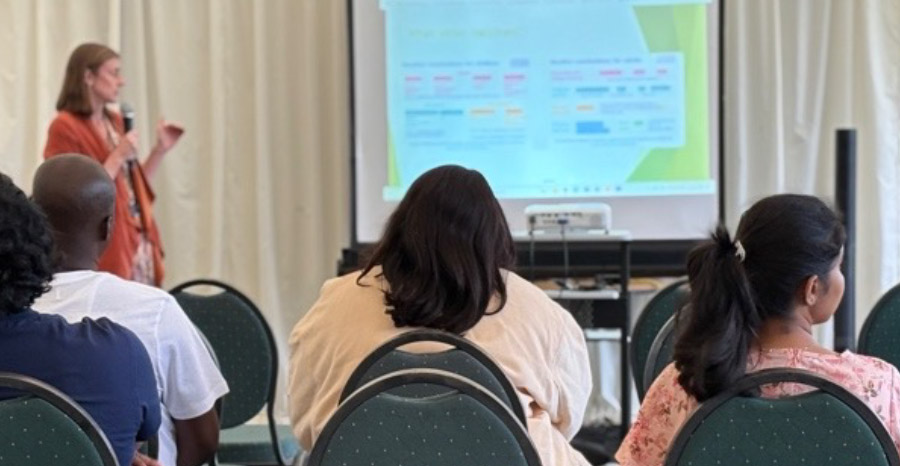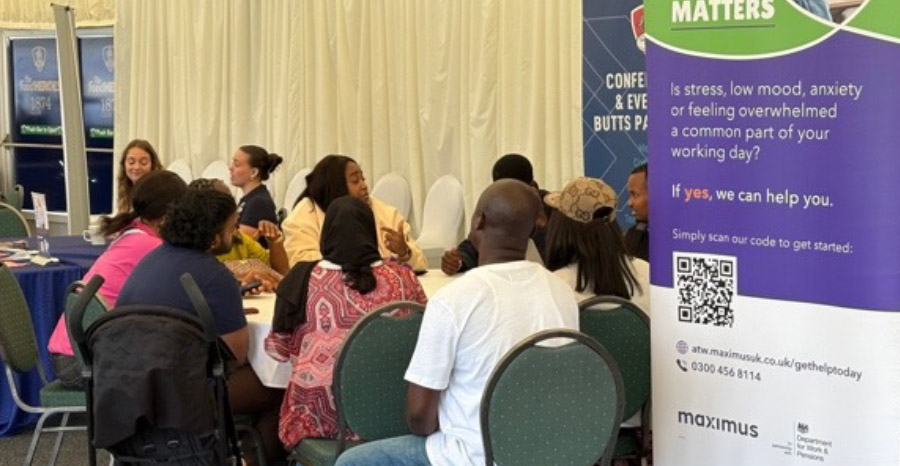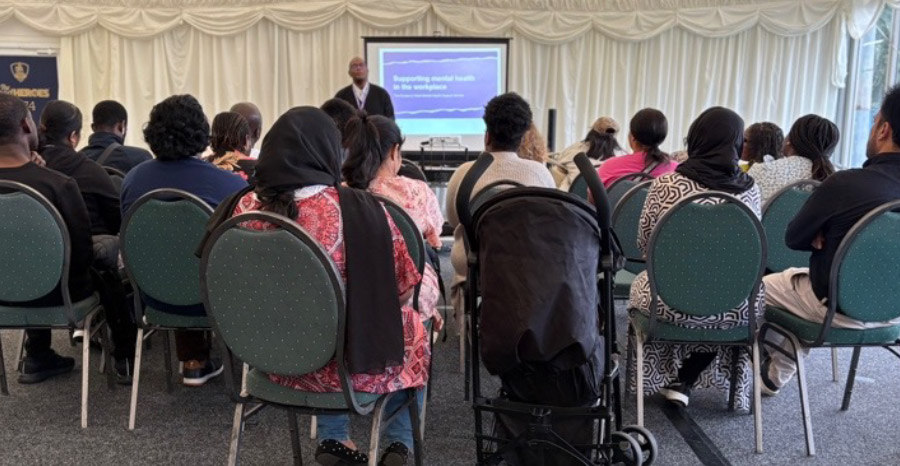Coventry City Council and Warwickshire County Council continue to play a huge role in supporting international care workers and their families. In July, around 50–60 people attended the most recent community drop in event for international care workers and their children.
Simon Veasey, International Recruitment Lead, at Coventry City Council says,
“We have a responsibility to the family as well as the international recruit – and it is clear from our events and the interaction we have with international care workers in our area just how many young children are impacted.”
This responsibility doesn’t stop neatly at city boundaries. In practice, Coventry and Warwickshire are closely interconnected – many care workers employed in Warwickshire choose to live in Coventry, where housing is often more affordable. With such porous boundaries, it makes sense to work hand in hand across the two local authority areas to support international care workers and their families.
Focus on health and wellbeing
The latest Coventry City Council event, hosted at Coventry Rugby Club with partner Warwickshire County Council, was designed to move beyond jobs and recruitment, focusing on keeping workers and their families safe, healthy and connected. NHS speakers delivered talks on diabetes, TB, HIV, vaccinations, sexual health and workplace mental health, while a wide range of partners – from Citizens Advice Bureau to MIND and Lifted – offered practical guidance.
The importance of face-to-face support
For many workers, the greatest impact came simply from being in the room with someone who would listen.
“People will tell you much more face to face than they’ll ever write down. Sitting down together shows care and respect and that’s when safeguarding issues or financial struggles come to light – things people would never put in an email”
says Simon.
Workers’ pride can also be a barrier. Some are reluctant to ask for help with basics like food or housing support. Face-to-face contact helps to navigate stigma and restore dignity, offering permission to accept support.
Community networks keeping people afloat
Coventry City Council recognises the critical role that churches and voluntary organisations are also playing. Simon says these churches are not always easy to identify and are sometimes hard to reach but without their support, many international care workers simply wouldn’t survive.
Immense family pressure
Behind every story are families who have made extraordinary sacrifices. Simon talked about one international care worker who sold everything she owned to come here – her house, her car, all her possessions. She told Simon she can’t go back because she owes so much money and that her children have said they’ll run away or kill themselves if they have to go back – they’re settled here in school, with friends.
Others face rejection from home. One worker was told bluntly:
“If you can’t get us to London, don’t come back. You better die there.”
You can hear more in this short video: Coventry City Council & Dudley Metropolitan Borough Council share what they’ve been hearing and learning from international care workers.
Risks of exploitation
With limited care jobs available and strict visa rules, some international care workers have been drawn into informal or unsafe work out of desperation. Others face exploitation within the care system itself. Simon described a case where an employer offered to sponsor a worker’s children – but then demanded repayment of £35,000 and withheld training certificates to stop her leaving.
He is quick to point out this is not the norm.
“We have some fantastic employers but we need to work together to ensure the right safeguarding measures are in place..”
Building resilience and moving forward
Alongside larger community events, Coventry has been running practical sessions on everyday challenges such as driving – from applying for a UK licence, to booking a test, to understanding the costs of getting on the road. These sessions help workers navigate a system that is very different to what they are used to back home, and driving often proves to be the key to securing employment.
The city has also launched a new Support Programme for International care workers – a free, three-month offer combining one-to-one coaching, monthly wellbeing workshops, peer support circles, and tailored resources. Designed for small groups of participants, the programme provides both online and in-person support to build confidence, reduce isolation, and give care workers a clear sense of their rights and opportunities in the UK.
Looking ahead
Coventry City Council is now looking at holding smaller drop-ins and peer support groups. The council has also coordinated legal advice sessions, housing and employment support, and health outreach to give workers a safe place to ask questions and feel seen and heard.
As recruiting from overseas has come to an end, looking ahead, Coventry’s (and Warwickshire’s) challenge is now how to support the existing international care workers and manage the wider workforce requirements in a sustainable way – through supporting local young people, migrants and refugees into care roles. The city’s experience shows the value of a joined-up local response that recognises the pressures international care workers face and works alongside them with dignity.



